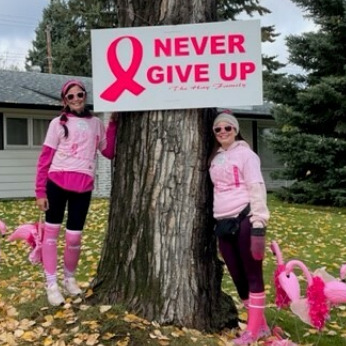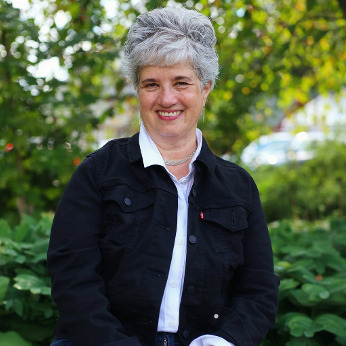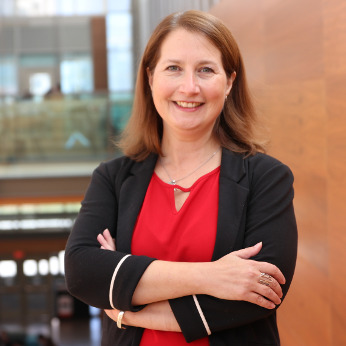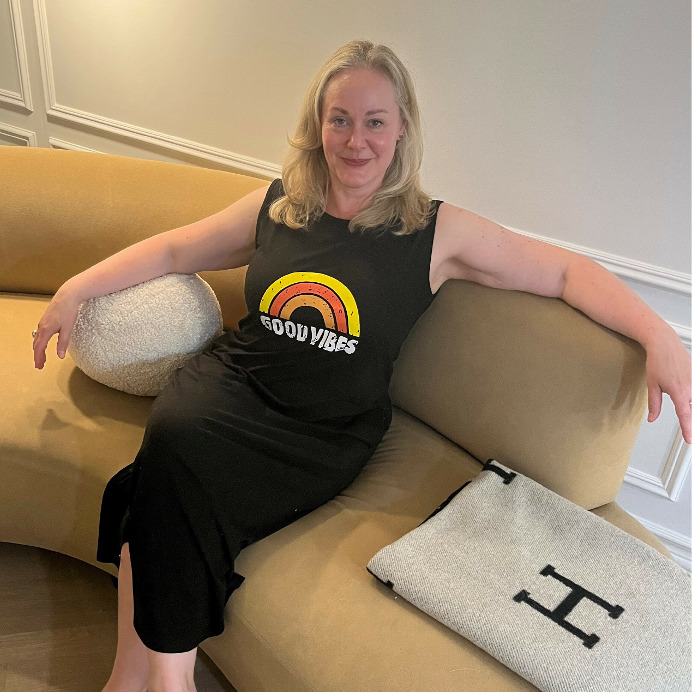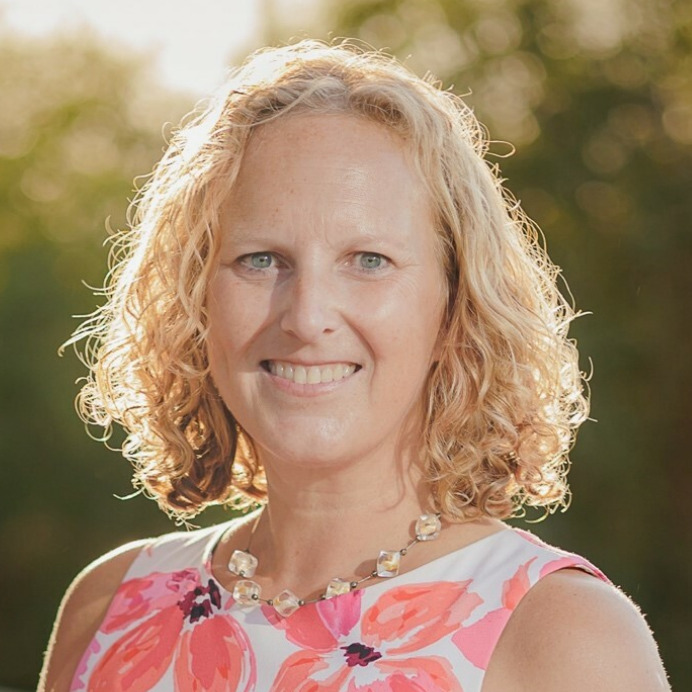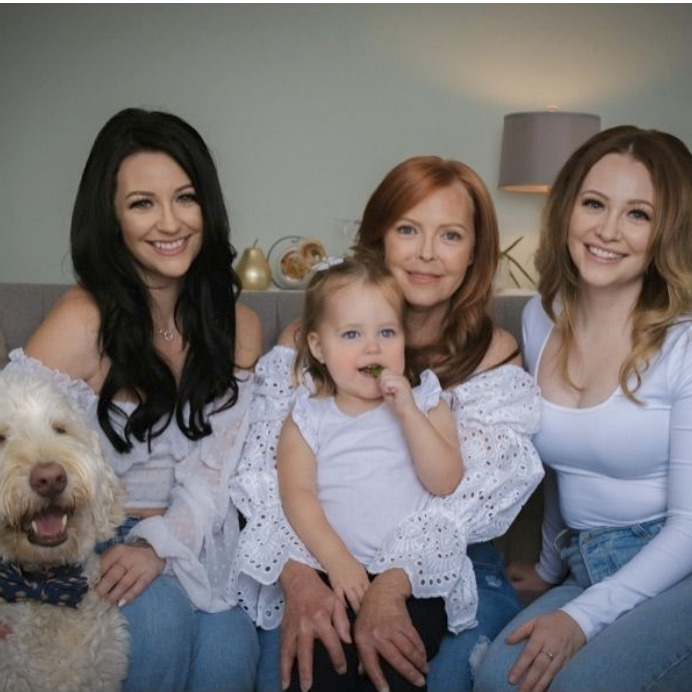By continuing to use our site, you consent to the processing of cookies, user data (location information, type and version of the OS, the type and version of the browser, the type of device and the resolution of its screen, the source of where the user came from, from which site or for what advertisement, language OS and Browser, which pages are opened and to which buttons the user presses, ip-address) for the purpose of site functioning, retargeting and statistical surveys and reviews. If you do not want your data to be processed, please leave the site.
The Voice of People With Breast Cancer
Education
Our Voices Blog
Category : Stories
Stronger Together: Sharing Genes and Breast Cancer Journeys
My name is Cortney Drover, and my identical twin sisters’ name is Connie Claeys. We are 37-year-old females living with Stage IV metastatic breast cancer, and being identical twins, we both carry the BRCA2 gene. Here is our story.
Stroke, Covid, Cancer: A Caregiver’s Struggle with Breast Cancer
Caregivers are often told, “You need to take care of yourself if you are taking care of others.” It’s so easy to say but not so easy to do. I wrote the above sentence in June 2021 for a future memoir. I had no way of knowing that 15 months later I would be writing about a new challenge. Before I can share my breast cancer story, I need to set the scene.
Free Your Mind: Five Must-know Free Psychotherapy Resources
A breast cancer diagnosis can leave you feeling winded, like you’ve been socked in the stomach and can’t breathe, or even think for that matter. That’s how I felt. I had no emotion, no tears and no anger when I first heard the words “you have breast cancer.” My mind and body simply froze and everything around me, including my mind, went hazy. I attribute this now to shock, which, in my opinion, is a fairly reasonable reaction to receiving such life-changing news. And while the haziness eventually wore off, the surrealness of my new reality remained overwhelming.
How Breast Cancer Transformed Colleen’s Leadership Career
If you found out that you had a life-limiting illness, would you tell your colleagues at work? If you did, would they think you’re less capable of doing your job? That was the dilemma that Colleen Packer faced when she was diagnosed with metastatic breast cancer in 2019.
The Cancer Time Warp
It’s safe to say that most of us believe, kind of like the-sky-is-blue believe, that the past, present, and future are the logical chronology of time. Even mathematical equations, which I am terrible at, define time as the measure of the duration that exists between each sequence of these events. So how come when it comes to breast cancer, time is so fucked up? It would be so much more manageable if we, individuals diagnosed with cancer, could just live in the present.
Ringworm: Tamoxifen’s Secret Side Effect
Trapped beneath my bra, cotton t-shirt and cropped pants, pools of sweat mingled with dust and grime before being absorbed into my clothes and skin. Despite the cold showers I soaped up under twice daily, one before heading out into the wee hours of the morning and another again in the dark of night before crawling under a thin sheet to sleep, the dirty damage was done. A skin fungus had formed. I had ringworm.
Show Me the Money. Five Ways You Can Receive Financial Support
When I was diagnosed with breast cancer, I had no idea how hard it would be. Not the surgery, I’ve had major surgery before, so I wasn’t afraid of being put under anesthetic and being operated on. Mentally, I was focused on one sole factor, survival, so my head space at the time was very clear and didn’t allow for any other emotions or thoughts. Reality, fear, anxiety, hope…that all came later.
Do You Feel Invisible?
A few years ago, a friend shared a story about the first trimester of her pregnancy. She was thrilled to be pregnant, but at the time, kept her pregnancy under wraps as she hadn’t passed the three-month safety zone. She was also sick as a dog, overwhelmed with intense nausea and fatigue, that heightened during her twice-daily, 25-minute subway commute to and from work. Despite looking green-ish, sweaty, unstable on her feet and gripping whatever pole or hand railing was available, not once in 90 days did anyone sitting on the subway offer my friend their seat. She’d felt invisible.
“Mommy Has Cancer”: The Most Difficult Conversation to Have
In February 2019, five days after my birthday, I found a tiny, split pea lump in my right breast. I immediately went to my GP, who sent me for a mammogram and ultrasound. The first available appointment was the following week. The mammogram went “squishingly” and then I was shuffled off for my ultrasound. Afterwards, the technician told me they needed to review the images with the radiologist to make sure they had everything they needed. I didn’t really think twice about it as that seemed to be the normal practice during my pregnancy.
I Am a Mother with Cancer
I am a metastatic breast cancer patient with liver and spine metastases. I am also a mom and a grandmother. One day, I felt a very hard pea-sized lump right under the skin. My family physician sent me for a mammogram and ultrasound. The radiologist came in and said he was concerned and brought me back the following day for a biopsy. I was diagnosed with invasive ductal carcinoma. I was petrified and scared. Since working at a cancer centre, I had every bad scenario going through my mind. I had a double mastectomy followed by four months of chemotherapy and seven weeks of radiation. It was difficult losing my hair, feeling nauseous and weak but I was determined to beat this horrible disease.

